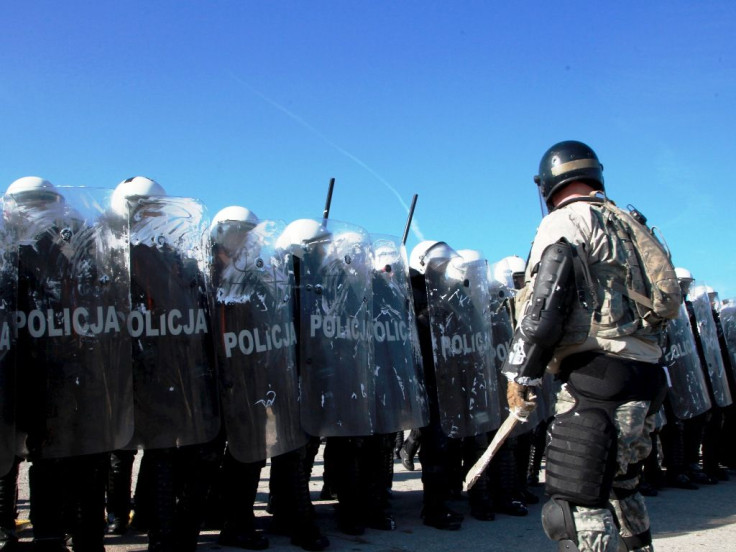War In Europe? NATO Troops In Kosovo To Remain Till Necessary, Military Alliance’s Top Official Says

NATO will keep its troops in Kosovo "for as long as it's necessary," a top official of the 28-nation military alliance said Tuesday during a visit to the country in southeastern Europe. This comes after NATO Secretary General Jens Stoltenberg urged Kosovo and Serbia to normalize their tense relations.
"We will keep in place a flexible, determined presence and will make changes only when the security situation allows. KFOR [NATO’s Kosovo Force] remain a robust and credible force, capable of carrying out its mission for as long as it's necessary," NATO's Supreme Allied Commander for Europe, Gen. Curtis Scaparrotti said, according to the Associated Press (AP).
Scaparrotti also expressed concern over Russia’s interests in the Balkans, "particularly in the media with disinformation, political influence, etc.," the AP reported.
The Balkan country has about 4,500 troops from 31 countries (Albania, Austria, Finland and Ireland from outside NATO, while Iceland — a part of NATO — has no troops in Kosovo) since June 1999 after NATO’s three-month bombing stopped a Serbian attack on ethnic Albanian separatists during the Kosovo War. In 2008, Kosovo declared independence from Serbia. Although the U.S. and some members of the European Union recognized Kosovo’s independence, Serbia and its ally Russia refused to do so. Five EU nations — Cyprus, Greece, Romania, Slovakia and Spain — have also not recognized Kosovo as a country.
Earlier this month, Stoltenberg urged Kosovo and Serbia to ease tensions that flared up after the latter sent a train with signs reading “Kosovo is Serbia” in January to Kosovo. While Serbian President Tomislav Nikolić accused Kosovo of wanting to start a war, Pristina said Belgrade was influenced by Russia’s annexation of Crimea in 2014 to annex the northern part of Kosovo.
"Not more rhetoric but we need dialogue, we need to reduce tensions to avoid incidents... and move forward normalizing the process between Pristina and Belgrade," Stoltenberg said at the time.
Easing tensions and normalizing ties between Kosovo and Serbia is an important condition for both nations to further their process to join the EU.
© Copyright IBTimes 2025. All rights reserved.






















